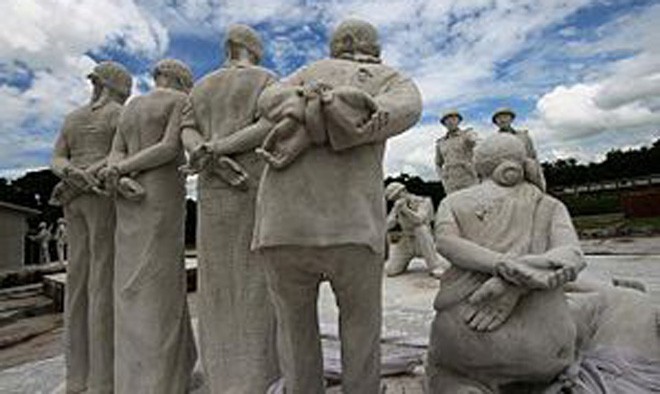
Reflecting on December 1971 -- what some people refer to, rather politely, as ‘the tragedy of East Pakistan’

Dear all,
As it is December again, it is time perhaps to reflect on December 1971 -- what some people refer to, rather politely, as ‘the tragedy of East Pakistan’.
The secession of the former ‘Eastern wing’ of the country followed a bloody civil war and many years of attempted cultural oppression by the federation. It was a brutal and horrible conflict and one awful chapter of it was the elimination of the Bengali intellectuals. In the period between March and December 1971, reportedly, dozens of professionals including academics, journalists, doctors and lawyers were picked up by the authorities. Their bodies were later found dumped in various places or in some cases after the exhumation of mass graves. Some were ‘disappeared’ and their bodies never found. This process continued right up to mid-December 1971 -- till a few days before the army’s surrender.
What details are available of this systematic elimination of intellectuals makes for truly chilling reading.
Despots and dictators feel it is essential to suppress dissent and, somehow, writers, poets and anybody else with an articulate voice and a dissenting narrative are considered especially dangerous. Hence these voices are silenced: their deaths a signal to others who might dare to voice a narrative different to that of the state’s.
Look at other brutal twentieth century examples: Germany, Spain, Argentina, Chile.
History is rife with such examples but the problem arises when the history of such violence adds to the sense of déjà vu in our lives. We hear of forced disappearances nearly every day. Of dumped and tortured bodies. Of the threats and attacks directed at those who question such events…of the killings which are a news story one day but forgotten the next. Of the deaths which are a key piece of a jigsaw puzzle that is never put together.
Intellectual exploration and questioning require one to try to fit the pieces into the puzzle, to join the dots, to link the past with the present. Thought requires the questioning of assumptions and the testing of hypotheses.
It is problematic to try to make sense of the present without the context of the past -- however awkward that may be. But you can’t see historical parallels if you are absolutely determined not to. Hence one former army officer (also a POW) who I spoke to about his experiences refused to accept that events and sentiments in Balochistan might mirror those in the former Eastern wing. The way he spoke of Baloch nationalists was chillingly evocative of the way many West Pakistanis would once refer to their Bengali compatriots -- as a somehow lower or treacherous species…
History is the code that might help us to crack the mysteries of the present, but alas it seems far too dangerous. But this December do take a few minutes to read about the ‘dangerous Bengali intellectuals’ who were eliminated in 1971. It will be confusing. And of course doubly confusing now that the state is fighting Taliban militants as well…
Where are the parallels to be found? What justifies what? Where lies culpability?
Dangerous questions! Life-threatening thoughts…
Best wishes